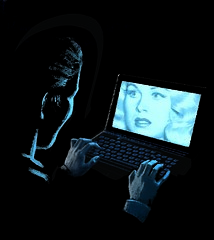"Mr. Barbicane Takes A Trip" Chapter Ten
Mr. Barbicane had assumed the young woman was having a dream and that something in the dream was disturbing her. She shifted in her seat and pulled her legs together. Then she closed her mouth and the small star blinked out and he had won is little game and could look away. As he did he realized she was waking, opening her eyes, but she did not catch him looking at her. There would be no need for conversation.
He looked out at the sky. They were flying into the afternoon now, losing hours as they went, and the sun was far behind them and traveling in the opposite direction. The further east they went, the darker the clouds became and the darkness came from something other than the absence of light. They were becoming more compressed, more solid, boiling up in their path as they started their initial decent into the Dallas-Ft. Worth area, a place famous for its thunder storms.
As the young woman next to him took out her earbuds, unclipped the iPod from her belt and wrapped the white wires around the small pink machine, the pilot came back on the public address system to inform them they would be passing through some “shower activity” as they dipped lower and lower on the approach to the airport and that there was the possibility of some turbulence. The time had come for the passengers to remain seated for the duration of the flight as the cabin attendants set to collecting the last of the service items and generally preparing the cabin for landing.
Mr. Barbicane checked his seatback and seatbelt then turned again to the window. The aircraft dropped below a floor of clouds the color snow takes on in the gutters of large cities two days after a storm.
Beneath the layer of old snow was a landscape of boiling gray mountains. The plane shuddered and rain smeared horizontally across the outer window. The cabin was filled with the thick green light of a thunderstorm, that late summer artificial twilight.
Mr. Barbicane had once been on a plane landing at this very airport when it was struck by lightning, a common occurrence in the region. It felt to those on board as if the side of the aircraft had been struck by a large pick-up truck going in excess of sixty miles an hour. But the sound of the collision was not followed by any indicators that the aircraft was in trouble. It never lost trim or power and continued on its steady decent. No masks dropped from overhead compartments, no cabin attendants charged through the aisles collecting shoes and eyeglasses. The passengers, Mr. Barbicane included, found themselves in a momentary condition of suspended emotion, wondering if they should go ahead and panic or if that would only end up a terrible embarrassment. He felt the cabin around him was filled with people who had filled their lungs in anticipation of a scream, but now wondered if they should let rip or await further developments one way or the other.
A moment and the co-pilot of the struck aircraft came on the public address system and stated, quite calmly, that the plane had indeed been struck by lightning, that the charge had been dissipated over the metal skin of the aircraft and that all was well.
With which some three hundred people exhaled. Mr. Barbicane found the experience exhilarating. His fear was of pain, not death or any addendum panic.
Outside the window it grew increasingly darker than the four o’clock local time would suggest.
As Mr. Barbicane watched the individual tears slide laterally across the window, the aircraft sank below the immediate layer of the storm. In the distance the horizon was a narrow band of bright gray, light caught between the clouds and the ground. They were getting slightly ahead of the storm as they dropped closer and closer to the ground and the familiar airport indicators of track houses, flat industrial buildings and then massive rent-a-car parking lots came into view.
The thunk of the landing gear doors opening and the whine of the gear’s hydraulic progress vibrated up from the cabin floor and into Mr. Barbicane’s feet. They crossed the last loop of access road, then the blast fence, then he watched the rain slick runway rise up to meet the aircraft.
When all three landing gear clusters were on the ground the pilot reversed thrust and Mr. Barbicane felt himself gently pulled forward by inertia. He had returned to the planet, but he was still a passenger.


0 Comments:
Post a Comment
<< Home